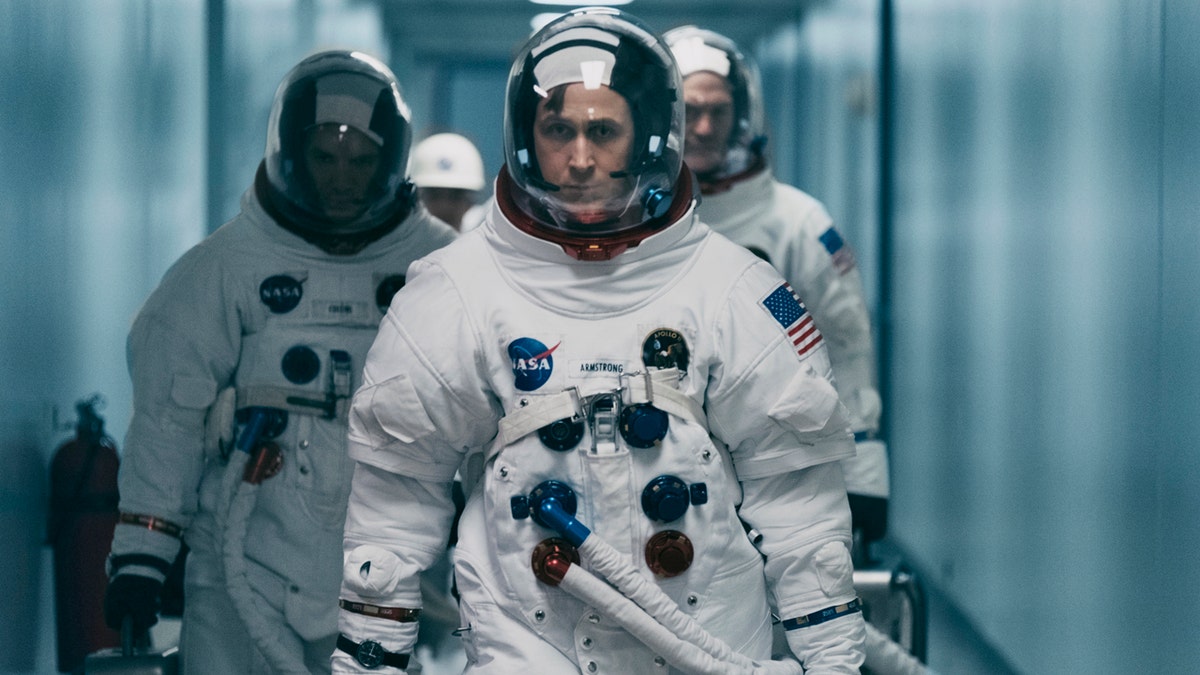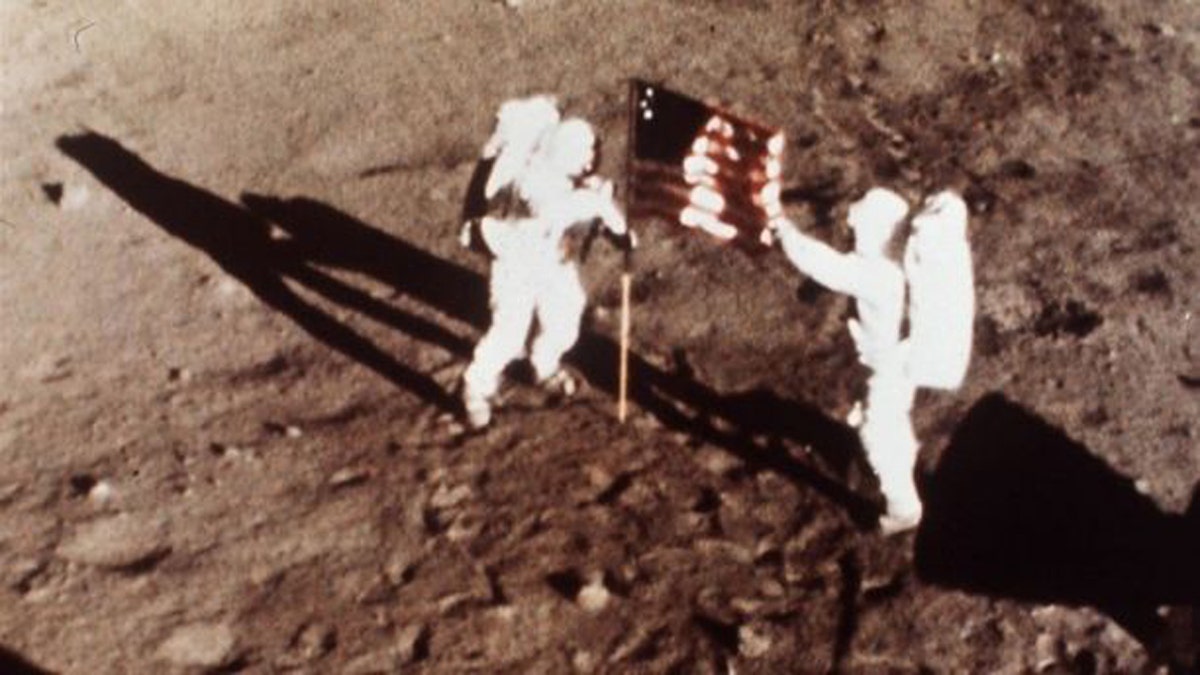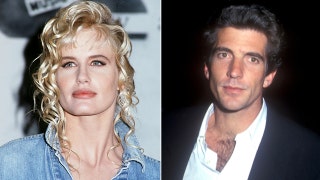
Ryan Gosling is in a scene from "First Man." (Universal Pictures via AP)
The sons of legendary astronaut Neil Armstrong are defending a forthcoming film about their father's historic moon landing, saying it is not "anti-American in the slightest."
Rick and Mark Armstrong, along with Armstrong biographer James R. Hansen, were reacting to criticism from conservative pundits and politicians, who've complained that the film does not depict Armstrong's planting of the American flag on the surface of moon.
"First Man" hits theaters next month.

Apollo 11 astronauts Neil Armstrong and Buzz Aldrin plant an American flag on the surface of the moon in July 1969. (NASA)
The Armstrong sons and Hansen released a joint statement Friday, saying that director Damien Chazelle's film is "quite the opposite" of being "anti-American."
They added that most of the comments against the film have been "made largely by people who haven't seen the movie."
"This story is human and it is universal. Of course, it celebrates an America achievement. It also celebrates an achievement 'for all mankind,'" the statement said.
"This story is human and it is universal. Of course, it celebrates an America achievement. It also celebrates an achievement 'for all mankind.'"
"The filmmakers chose to focus on Neil looking back at the earth, his walk to Little West Crater, his unique, personal experience of completing this journey, a journey that has seen so many incredible highs and devastating lows," they said.
"First Man" does not depict the flag planting, but it does include several shots showing the American flag on the moon.
Chazelle said the decision around the flag planting wasn't political but aesthetic. The "La La Land" filmmaker was motivated to portray the risks and challenges of the moon mission through the eyes of Armstrong.
"The flag being physically planted into the surface is one of several moments of the Apollo 11 lunar EVA [extravehicular activity] that I chose not to focus upon," Chazelle said in a separate statement Friday.
"To address the question of whether this was a political statement, the answer is no. My goal with this movie was to share with audiences the unseen, unknown aspects of America's mission to the moon — particularly Neil Armstrong's personal saga and what he may have been thinking and feeling during those famous few hours," the director said.
Ryan Gosling, the Canadian actor who portrays Armstrong in the movie, also defended the decision to not show the flag, reportedly saying that he doesn't think "Neil viewed himself as an American hero ... we wanted the film to reflect Neil."
After the film premiered earlier this week at the Venice Film Festival, some commentators on social media who hadn't seen the movie criticized it. They reacted largely to Gosling telling reporters in Venice that the astronaut's accomplishments "transcend countries and borders."
U.S. Sen. Marco Rubio, R-Fla., blasted the comments, tweeting "This is total lunacy."
"And a disservice at a time when our people need reminders of what we can achieve when we work together," Rubio tweeted Friday -- though it wasn't immediately clear whether Rubio had seen the film. He was responding to an article about it.
Film critics nonetheless enthusiastically praised the film, rocketing "First Man" to early lists of possible Oscar favorites. Universal Pictures will release it Oct. 12.
"This was a feat beyond imagination; it was truly a giant leap for mankind. This film is about one of the most extraordinary accomplishments not only in American history, but in human history," Chazelle said. "My hope is that by digging under the surface and humanizing the icon, we can better understand just how difficult, audacious and heroic this moment really was."
Neil Armstrong died in 2012 at age 82.
The Associated Press contributed to this report.














































